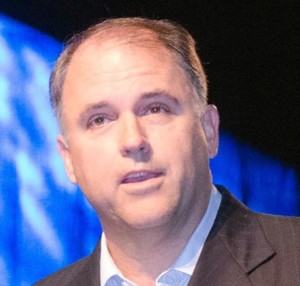What will be the final cost of the Southern Baptist Convention’s investigation into allegations of mishandling sexual abuse claims?
There are, of course, costs in terms of reputation and witness, but also financial costs that could take years to fully document.
Based on the recent experience of other national organizations, the word “final” makes this question impossible to answer. Although unlike some of those organizations — the Catholic Church and the Boy Scouts of America, for example — the autonomous nature of the SBC could throw up a firewall against ascending liability.
Even with the much-anticipated release on May 22 of an outside investigation into allegations of mishandling of sexual abuse cases by the SBC Executive Committee, the financial cost will only begin to be tallied. Much depends on what that investigation finds and whether there are subsequent avenues of investigation to be followed or legal actions that result from the findings.
“The autonomous nature of the SBC could throw up a firewall against ascending liability.”
Further, the current investigation by Guidepost Solutions has focused only on the SBC Executive Committee — not on any of the SBC’s 11 other agencies or seminaries, each of which could have its own history to review and liabilities to mediate.
Current tab
Here’s what’s known for sure at this point as reported by Baptist Press April 19: “The cost of the investigation into alleged mishandling of sexual abuse claims by the Southern Baptist Convention Executive Committee has reached $1.7 million since being commissioned last fall.”
That’s $1.7 million and rising. The investigation isn’t done, the report has not been issued, and the bill to date doesn’t include all the work that’s already been done.
An initial projection for the investigative work to be done by Guidepost Solutions was $1.3 million to $1.6 million. Close observers now project the cost could double that when all is said and done.
In February, the Executive Committee approved up to $4 million in expenses for the investigation. Half was earmarked for the investigation and half for the Executive Committee’s legal fees incurred. As of April 28, Baptist Press reported that “less than a third” of the funds set aside for Executive Committee legal fees had been spent, meaning less than $666,000.
“In February, the Executive Committee approved up to $4 million in expenses for the investigation.”
Costs for the investigation — called for by messengers to the 2021 annual meeting — are being paid from Executive Committee reserve funds. And denominational officials have been quick to point out that those reserve funds are not an endless pot of cash as some might think.
Baptist Press reported April 19 that Executive Committee reserve funds built up over the years through investments stood at $15 million as of February 2022, with $12.2 million in unrestricted funds.
A week later, a denominational official told members of the Executive Committee that while it is true the Executive Committee has $12.2 million in unrestricted reserves, nearly $5 million of that is connected to property, equipment and designated funds. The actual figure of reserve funds potentially available for the costs of the investigation is about $7.3 million.
This is not to deny that the SBC has hundreds of millions of dollars in assets of all kinds through real estate, endowments and other investments. The denomination will take in about $200 million in undesignated offerings this fiscal year, not counting a similar amount designated for missions offerings and other special causes. And giving from parishioners through their churches to the national body is on the increase this year, against the economic odds.
Only the beginning
Based on current information, it seems unlikely the cost of the Guidepost investigation will exceed available funds allocated by the Executive Committee for this work. However, the cost of the sexual abuse investigation itself could be only the beginning, a point made by some Executive Committee members who last year opposed the nature and scope of the investigation.
“The cost of the sexual abuse investigation itself could be only the beginning.”
What cannot be known yet is whether the Guidepost report will unveil other potential financial exposures to the SBC as a legal entity or a need to offer restorative justice or reparations. For example, have any members of the SBC Executive Committee board or staff harmed someone in a way that could lead to litigation or the need for restitution?
So far, there has been only one public accusation of this nature, and in February the Executive Committee issued a rare public apology and offered a confidential settlement to the person wronged.
Jennifer Lyell’s disclosure of abuse while employed at another SBC entity was publicly misrepresented as consensual by a Baptist Press story that ran on March 8, 2019. Baptist Press is part of the Executive Committee.

Jennifer Lyell
“The SBC Executive Committee acknowledges its failure to adequately listen, protect, and care for Jennifer Lyell when she came forward to share her story of abuse by a seminary professor,” the apology stated. “Baptist Press failed to accurately report the sexual abuse Jennifer Lyell reported to two SBC entities and local Southern Baptist churches. The SBC Executive Committee acknowledges its failures to Ms. Lyell, including the unintentional harm created by its failure to report Ms. Lyell’s allegations of nonconsensual sexual abuse were investigated and unequivocally corroborated by the SBC entities with authority over Ms. Lyell and her abuser.”
What’s notable about the Lyell case is that the actual abuse she endured happened in relation to another SBC entity. The SBC Executive Committee got involved only because its leaders knew about the case and mishandled the response and reporting of it.
The Executive Committee is a small operation, compared to the size of the SBC as the nation’s largest non-Catholic denomination. With only a couple dozen staff members, the Executive Committee serves as a clearing house and coordinating point for the multi-tentacled denomination. Thus, its own exposure to potential sexual abuse accusation is far more limited than the SBC’s other, larger entities.
Autonomy and ascending liability
Here’s where comparisons to the Roman Catholic Church or the Boy Scouts of America break down. Both those organizations have a centralized governance or management function that, even though using thousands of volunteers, still requires adherence to the policies and procedures of a single leadership structure.
Baptists do not operate that way. One of the hallmarks of Baptist polity is a belief in “local church autonomy.” That means, in theory at least, that every Baptist congregation, every Baptist association, every Baptist state convention, every Baptist school, every Baptist mission agency — all are free to operate with autonomy and cannot tell the others what to do, who to hire or how to spend their money.
Except, it’s not that simple in real life because of the money. The Executive Committee controls the purse strings. Acting with approval from messengers to SBC annual meetings, the Executive Committee receives and processes funds that go from 47,000 churches to all SBC entities, even setting the percentages of distribution. And the Executive Committee plays a key role in coordinating the work of the otherwise autonomous entities, so that they don’t duplicate each other’s work.
“If an individual act of sexual abuse occurs within a local Southern Baptist congregation that congregation could be held liable for legal claim, but the SBC always has contended that it cannot be.”
Here’s why this is important: If an individual act of sexual abuse occurs within a local Southern Baptist congregation — say, a youth worker abusing a teenager — that congregation could be held liable for legal claim, but the SBC always has contended that it cannot be held liable. The reasoning is that the SBC has no control over the personnel selection, safety protocols or management of that congregation.
That’s different than a Catholic congregation, where clergy work under the direct control of bishops and archbishops and a pope and congregational policies are handed down from on high. It’s also different than the Boy Scouts which, although working through “chartered organizations” such as churches and schools, still controls the volunteer selection criteria, training and even the liability insurance.
What’s vexing about this firewall
Through the years, alleged victims and survivors of abuse in Southern Baptist churches have run headlong into this firewall of autonomy — especially when they have attempted to report abuse upline as one would normally do in a hierarchical organization. Associational officials, state convention officials, national officials all routinely have said, “I’m so sorry to hear this, but I have no power to do anything about it.”
Some abuse survivors and advocates have rallied to create a national database of known abusers in Baptist churches, with the hopes of keeping those ministers and volunteers from moving from one congregation to another. One of the key allegations against Catholic officials was that bishops quietly moved abusive priests from one parish to another with full knowledge of the risk.
But because of autonomy, Baptists have no bishops assigning clergy to congregations. Each congregation hires its own staff. Thus, denominational officials have said it would be not only impossible for them to maintain a database of reported clergy abusers but also would expose the denomination to liability it otherwise doesn’t endure. Survivor advocates counter that collecting information does not constitute a violation of autonomy.
Sexual abuse survivor and advocate Christa Brown has repeatedly documented cases where abused persons attempted to get help from denominational officials and not only were told nothing could be done but often were treated with derision.
A challenge to autonomy through a different case
This autonomy firewall defense came to an interesting impasse a few years ago in an ongoing case not about sexual abuse but about wrongful termination.

Will McRaney
When Will McRaney was fired as leader of the Baptist Convention of Maryland and Delaware in 2015, he claimed he was the victim of a vendetta by the president of the SBC’s North American Mission Board. NAMB has been consolidating its control over church planting efforts in states across the nation, and McRaney resisted giving up that local control. He says NAMB President Kevin Ezell threatened his state convention’s leaders with withholding millions of dollars in funding if they didn’t get rid of McRaney.
McRaney filed suit, and that case is still winding its way through federal courts, where questions about Baptist autonomy are taking a starring role. NAMB and Ezell contend they can’t be found liable because the SBC doesn’t have a hierarchy and they have no control over state conventions. McRaney contends NAMB and Ezell very much have control over state conventions because of the way they wield money.
Initially, the SBC’s public policy arm, the Ethics and Religious Liberty Commission, joined the Thomas More Society in a friend of the court brief that said the SBC, NAMB and state conventions do have a hierarchical relationship and that the SBC “is the umbrella Southern Baptist governing body over all of the various groups of churches.
That brief sent other SBC leaders — especially trustees of the Executive Committee — into a frenzy because it chipped away at the firewall protecting the SBC from litigation on a wide range of issues.
“That brief sent other SBC leaders into a frenzy because of it chipped away at the firewall protecting the SBC from litigation on a wide range of issues.”
The ERLC later amended its position on the brief, but the damage had been done. That brief became one of a quiver full of arrows slung at former ERLC head Russell Moore, who last year resigned and left the denomination.
Why autonomy matters now more than ever
Whatever the outcome of the Guidepost Solutions report regarding mishandling of sexual abuse allegations by the SBC Executive Committee, it is likely to be only the opening chapter in a long story, not the final word.
Given the months of interviews Guidepost has conducted with more than 300 individuals and the terabytes of data it has sifted through — all focused on a relatively small span of time — there will inevitably be new threads to pull and new questions to ask.
While the Executive Committee could face legal challenges based on its own actions, the far greater implications are for the vast network of SBC agencies and congregations that could be implicated or that could be forced to undertake their own forensic reviews. In the current moment, only the ERLC has announced its own review, also led by Guidepost.
There are other SBC entities that, statistically speaking, are much more likely to have encountered cases of sexual abuse that could have been mishandled or ignored.
“Throughout the years, incidental reports have surfaced of abuse perpetuated by SBC missionaries, but most of those have been dealt with quietly and little publicity has resulted.”
All six SBC seminaries provide on-campus housing for students, recreational facilities, camps and retreats. The SBC is the largest provider of graduate-level theological education in the United States.
And then there are the two mission agencies. NAMB, previously known as the Home Mission Board, has for 150 years sent missionaries across the nation, hosted camps and retreats and started churches. Its programs include missions immersion programs for youth and college students. And the International Mission Board, previously known as the Foreign Mission Board, over two centuries has sent missionaries around the globe where they have started churches, run schools and camps and worked with vulnerable people.
Throughout the years, incidental reports have surfaced of abuse perpetuated by SBC missionaries, but most of those have been dealt with quietly and little publicity has resulted.
IMB investigation in 2019
In 2019 — two years before creation of the SBC Sexual Abuse Task Force — newly elected IMB President Paul Chitwood reported to his trustees the result of a study by the consulting group Gray Plant Mooty, which had looked into the IMB’s handling of past matters and current policies and practices related to the prevention of and response to allegations of child abuse and sexual harassment.

Paul Chitwood
Although the specific findings of that investigation were not made public, the consulting firm offered some stern warnings about what it found: “IMB’s child abuse and sexual harassment (including sexual assault) prevention and response efforts have improved over time. There is, however, much room for improvement if IMB is to meet its goal of adopting best practices for prevention of and response to child abuse and sexual harassment (including sexual assault).”
The consultants identified “a number of significant concerns with IMB’s handling of past cases” and noted that “even with the improvements that have been made over time, IMB’s current policies and procedures fall short of contemporary best practice standards.”
Three recommendations were made:
- Create a new full-time position to oversee prevention and response efforts.
- When IMB receives a report of child abuse or sexual harassment (including sexual assault), involve outside legal counsel with expertise in this area to provide advice throughout the process.
- Continue the current practice of using a forensic psychologist with expertise in interviewing children to conduct investigation interviews of children.
Chitwood told trustees at the time: “Let me assure you … that IMB absolutely remains committed to making changes necessary to better prevent instances of child abuse and sexual harassment (including sexual assault), and to do all we can to better care for victims while holding perpetrators accountable.
Further, the president said every uncovered incident of alleged child abuse by IMB personnel or others affiliated with IMB that had not previously been reported had now been reported to appropriate authorities.
Counting the cost

Ed Litton
Current SBC President Ed Litton, an Alabama pastor who has been a staunch supporter of the Guidepost investigation, told members of the Executive Committee this April: “When Southern Baptists voted overwhelmingly in Nashville to authorize this investigation, their will was unmistakable. Our convention sent one loud and clear message: sexual abuse is something we cannot afford to get wrong.
“This process has been difficult and costly, but these obstacles do not compare to the devastation and pain wrought by sexual abuse. I am grateful that in recent months our Executive Committee staff and trustees have acted decisively to support this investigation. I would ask all Southern Baptists to continue to pray not only for this process but for the recommendations and reforms it will yield.”
Meanwhile, the abuse survivor advocacy group Child USA reports that the lifetime cost of addressing sexual abuse that happened to someone as a child averages $830,928 per victim.
Related articles:
First review of SBC sexual abuse report begins today
Interim IMB president says investigation into handling of abuse allegations will continue


